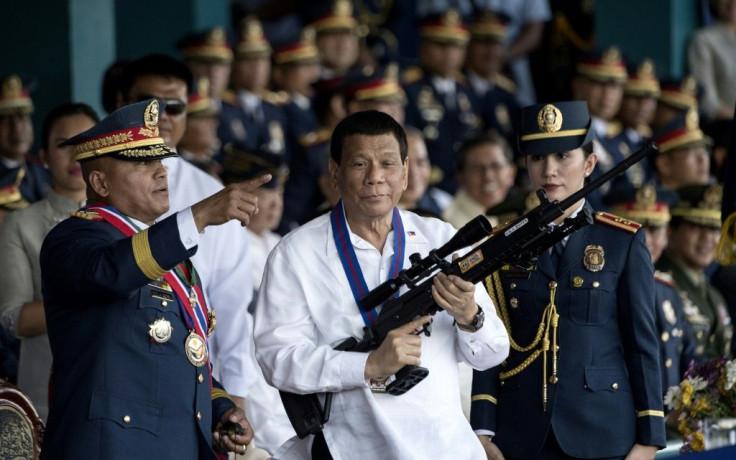Duterte Orders End to Military Pact With US, Despite Looming China Threat

Philippine President Rodrigo Duterte, communicating via his spokesperson Salvador Panelo, has ordered that the government’s notice to terminate the Visiting Forces Agreement (VFA) be sent to the United States government. China, with naval forces often seen in the Philippine waters, will be watching how this develops with much interest.
Duterte’s move is a “retaliation” of sorts that could cost his own country P10 billion ($200 million) in aid, including military assistance and financial grants from the U.S., should the termination push through. Recently, the president referred to the VFA as “that son of a b***h” that he would terminate if the U.S. did not “correct” the revoked diplomatic visa of Senator Bato Dela Rosa, a former Philippine National Police (PNP) chief who oversaw the most brutal phase of Duterte’s drug war.
Panelo added that Duterte will soon speak to U.S. President Donald Trump who is charging toward a November re-election fresh off an impeachment acquittal and a rousing State of the Union Address.
The VFA was negotiated soon after the closure of American military bases in the Philippines in the early 1990s. It provides the legal framework for U.S. soldiers to enter the Philippines. It also provides the operating software for U.S. troops stationed in the country on a rotating basis, often in the south in terrorism-prone regions.
By agreement, the two-decade military pact can be terminated with a written notice from either of the countries. Expiration is 180 days from the time either party notifies the other, or in August, in this case, leaving plenty of time for reconsiderations.
Those requesting that Duterte change his mind include Senate President Vicente "Tito" Sotto III, Senate Minority Leader Franklin Drilon and Senator Panfilo “Ping” Lacson, who have filed a resolution asking the President to reconsider his decision to terminate the VFA.
On Thursday, Secretary of Foreign Affairs Teodoro "Teddyboy" Locsin Jr. told the Senate about the potential loss of P10 billion if the VFA is terminated. When Senators asked Locsin if the President consulted the Foreign Affairs Department before ordering to scrap the VFA, the secretary said Duterte did not approach him.
Another senator, Majority Leader Miguel Zubiri, cited economic complications if the country unilaterally withdraws from the agreement. He said, “[Translated] That has a lot of implications. There are economic implications even on the military benefits and of course trade between the U.S. and the Philippines, there may be a few complications and problems.”
According to Senator Aquilino "Koko" Pimentel III, the entire executive branch is backing the President on his decision. He told reporters Thursday, "They [are] ready to terminate once given the signal. That’s the impression I got yesterday.”
To most observers, P10 million is a lot to risk over a minor scrape over a diplomatic visa. It is known that Duterte wants outsiders to stop meddling in his country’s affairs over his drug war and alleged human rights abuses. It is also known that he has gravitated toward China and Russia since his 2016 election and away from the Philippines' most potent ally, the U.S. What is not known is the degree of influence the countries have over the 74-year-old leader. The upcoming phone call between Duterte and Trump may answer that question.
© Copyright IBTimes 2024. All rights reserved.





















